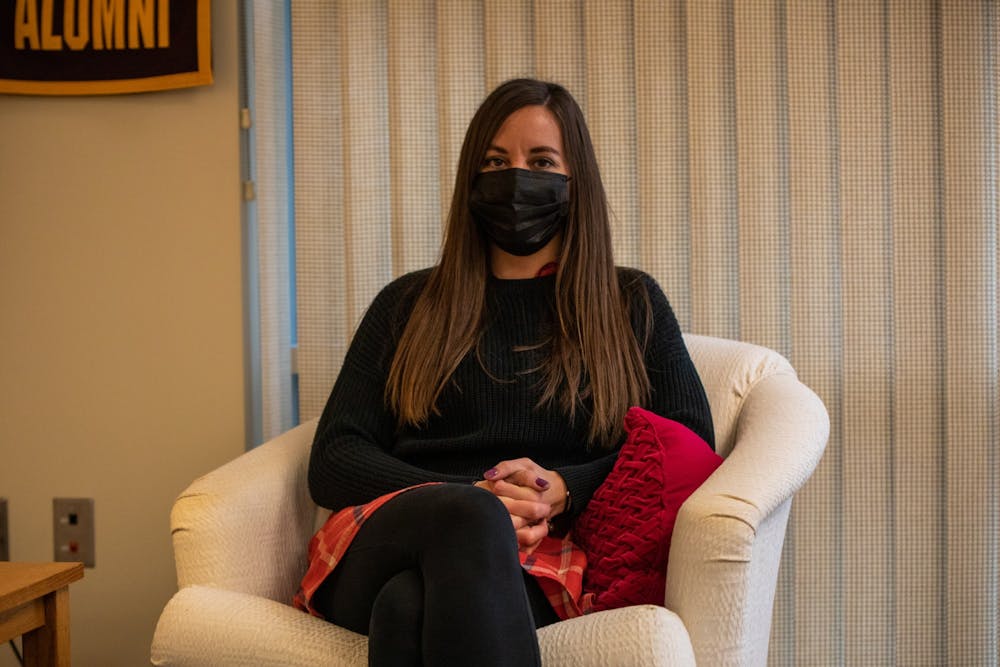How CMUPD responds to student mental health crises
As an advocate who is part of the Central Michigan University Care Team for the South residence hall community, Erica Redmond works as a mental health consultant for Residence Life and offers support for students.
She frequently checks in with students and connects them to helpful resources. In the event of a more serious situation, Redmond will call the Central Michigan University Police Department for assistance.
"It's pretty rare that I have an interaction with our police department, but probably once a school year, I have a student in my office having suicidal thoughts and wanting to act on them," Redmon said. "In those cases, I never let a student leave my office (feeling that way)."
The university's Care Team is composed of representatives from 10 offices across campus, including Residence Life, the Office of Student Conduct, the Counseling Center and CMUPD.
After receiving a Care Report from a student, faculty member parent or other concerned person, the Care Team will assess the situation and initiate outreach. The group also meets regularly to develop personalized plans, and all of the information they share is kept confidential.
In 2019, CMUPD responded to 18 out of 1,495 Care Reports that were submitted. So far in 2020, CMUPD has gotten involved with 23 reports.
CMUPD receives most of its mental health-related calls as referrals from Care, which Director Andrea Lobert describes as a "one-stop shop" that connects students to help and resources.
With CMUPD as a partner, Redmond said she feels relieved knowing that students will receive the next-level care they need. The police officers sit down with students in crisis and begin "disarming themselves" to try to make a human connection.
"They show they're really just there to help,” Redmond said.
Police Chief Larry Klaus said CMUPD will only get involved with a mental health incident if there's an immediate concern of self-harm or danger to others. The CMUPD staff receives training in crisis intervention, with a focus on empathy, listening and de-escalation techniques.
“We clearly understand our role is not intended to serve as a long-term solution, but one that assists our mental health professionals to engage (with) individuals during a mental health crisis,” Klaus said.
Lt. Michael Morrow has been CMUPD’s representative for the Care Team since its establishment in 2005. As a self-proclaimed non-expert, Morrow said he deeply respects the work of the Care Team and mental health professionals.
"I just want to give a shout out - to use that term - to everybody that sits around the Care table," Morrow said. "I know they spend many hours trying to figure out unorthodox solutions to difficult problems and ensure the success of every student and report that comes across their desk."
Lobert said she "couldn't be more proud" to partner with the police department.
"Nobody is ever in trouble when there are concerns for mental health," she said. "(CMUPD) really has the interest (and safety) of the student at heart."
Morrow said his experience on the Care Team has been insightful in learning about mental health trends and how they impact police work.
“Police are not mental health professionals, and we have never claimed to be mental health professionals," Morrow said. "Sometimes we find ourselves trying to work through those situations, and we do the best we can, but it's not our goal to be the first-line response to mental health situations."
To submit a Care Report, visit the Care's website. For more mental health resources, visit the Counseling Center's website.







